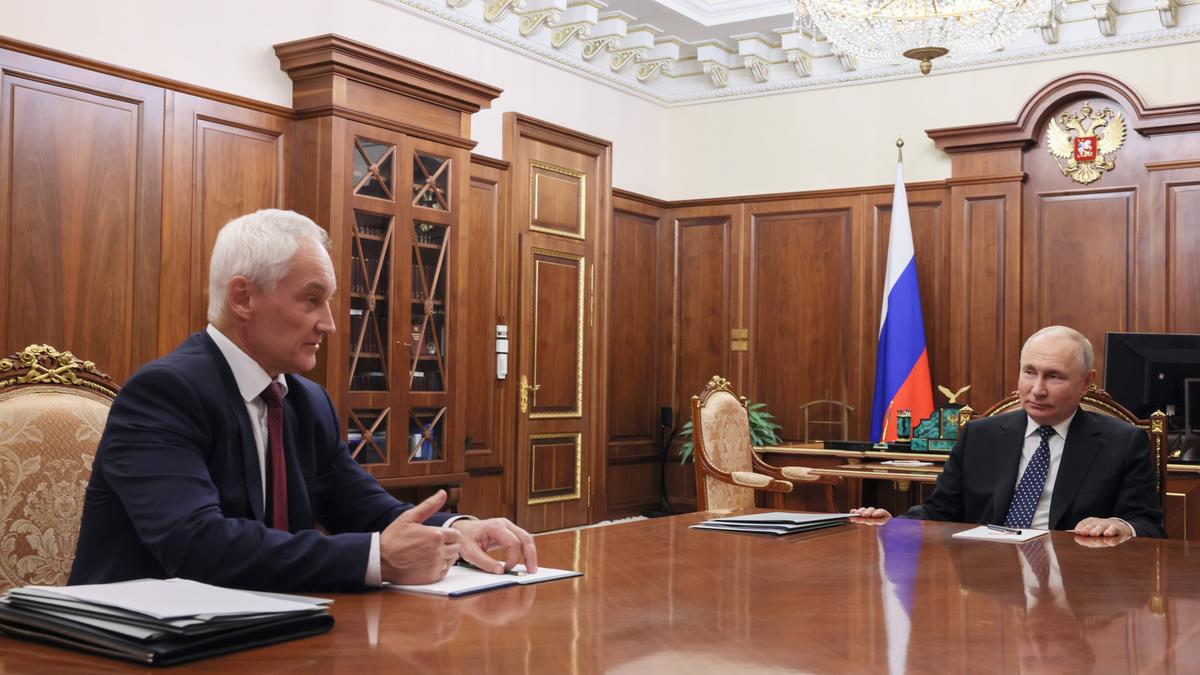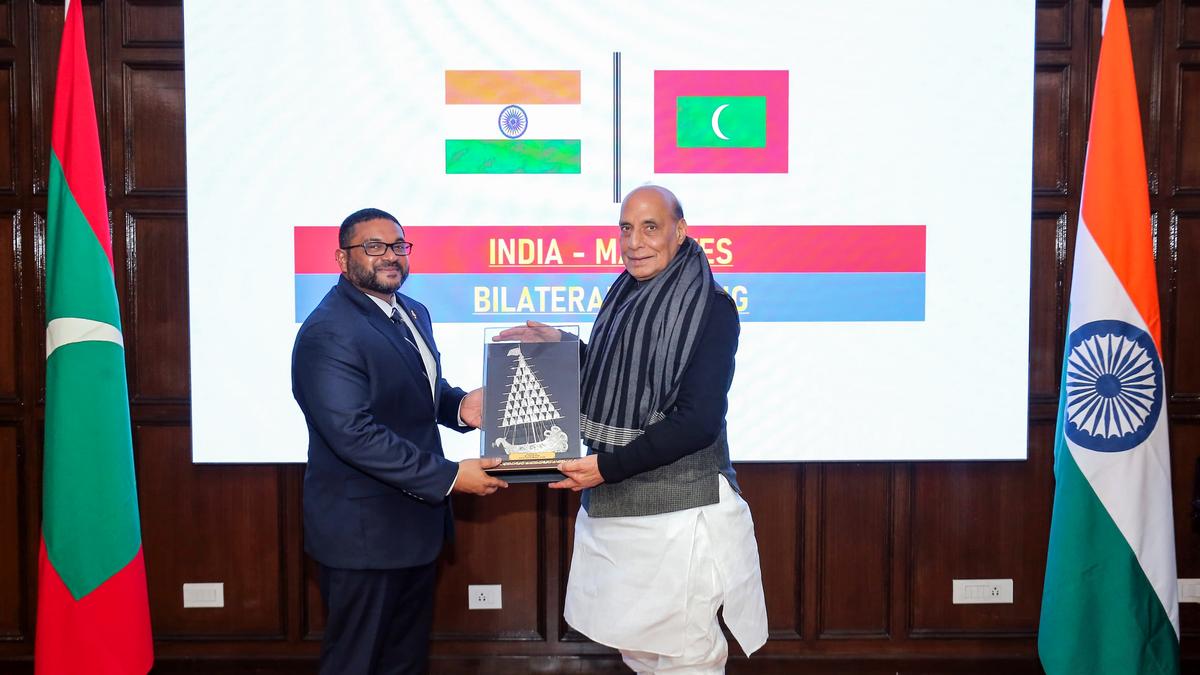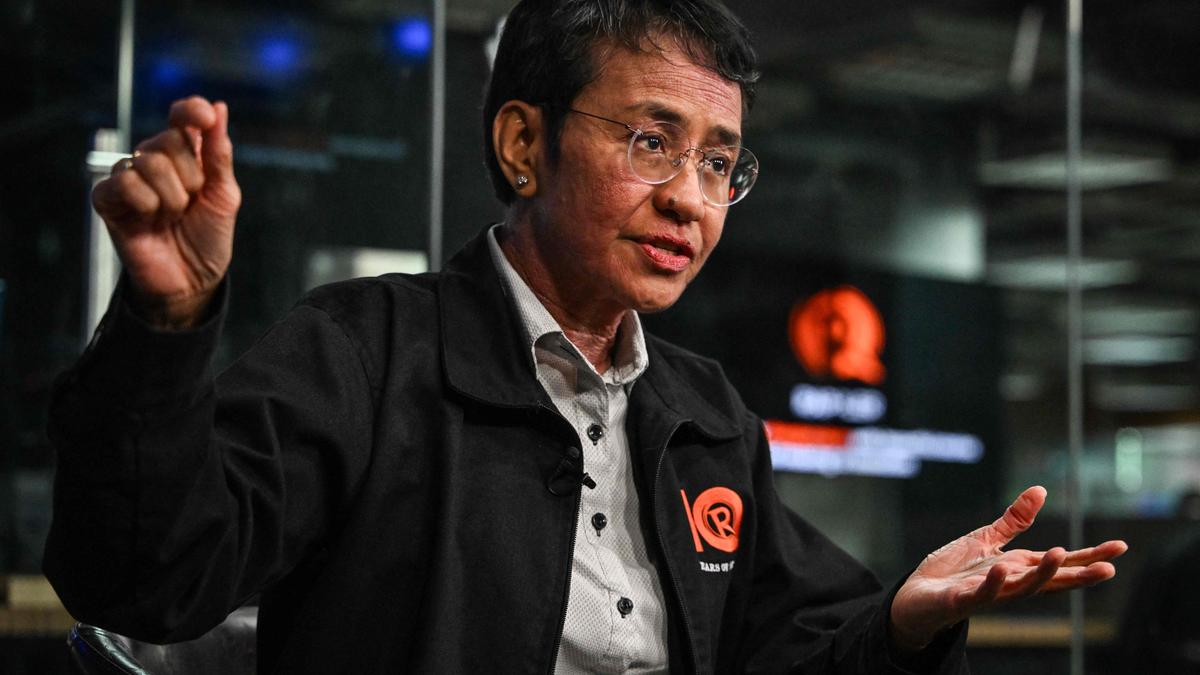Russian President Vladimir Putin on May 12 replaced Sergei Shoigu as Defence Minister in a Cabinet shakeup that comes as he begins his fifth term in office.
In line with Russian law, the entire Russian Cabinet resigned on Tuesday following Mr. Putin’s glittering inauguration in the Kremlin, and most members have been widely expected to keep their jobs, while Mr. Shoigu’s fate had appeared uncertain.
Mr. Putin signed a decree on Sunday appointing Mr. Shoigu as secretary of Russia’s Security Council, the Kremlin said. The appointment was announced shortly after Mr. Putin proposed Andrei Belousov to become the country’s Defence Minister in place of Mr. Shoigu.

The announcement of Mr. Shoigu’s new role came as 13 people were reported dead and 20 more wounded in Russia’s border city of Belgorod, where a 10-story apartment building partially collapsed after what Russian officials said was Ukrainian shelling. Ukraine has not commented on the incident.
Mr. Belousov’s candidacy will need to be approved by Russia’s Upper House in parliament, the Federation Council. It reported on Sunday that Mr. Putin introduced proposals for other Cabinet positions as well but Mr. Shoigu is the only Minister on that list who is being replaced. Several other new candidates for Federal Ministers were proposed on Saturday by Prime Minister Mikhail Mishustin, reappointed by Mr. Putin on Friday.
Mr. Shoigu’s deputy, Timur Ivanov, was arrested last month on bribery charges and was ordered to remain in custody pending an official investigation. The arrest of Mr. Ivanov was widely interpreted as an attack on Mr. Shoigu and a possible precursor of his dismissal, despite his close personal ties with Mr. Putin.
Kremlin spokesman Dmitry Peskov said on Sunday that Mr. Putin had decided to give the Defence Minister role to a civilian because the Ministry should be “open to innovation and cutting-edge ideas.” He also said the increasing defence Budget “must fit into the country’s wider economy,” and Mr. Belousov, who until recently served as the first Deputy Prime Minister, is the right fit for the job.
Mr. Belousov, 65, held leading positions in the finances and economic department of the Prime Minister’s office and the Ministry of Economic Development. In 2013, he was appointed an adviser to Mr. Putin and seven years later, in January 2020, he became first deputy Prime Minister.
Mr. Peskov assured that the reshuffle will not affect “the military aspect,” which “has always been the prerogative of the Chief of General Staff,” and Gen. Valery Gerasimov, who currently serves in this position, will continue his work.
Tatiana Stanovaya, a senior fellow at the Carnegie Russia Eurasia Center, said in an online commentary that Mr. Shoigu’s new appointment to Russia’s Security Council showed that the Russian leader viewed the institution as “a reservoir” for his “‘former’ key figures — people who he cannot in any way let go, but does not have a place for.”
Figures such as former Russian President Dmitry Medvedev have also been appointed to the security council. Mr. Medvedev has served as the body’s deputy chairman since 2020.
Mr. Shoigu was appointed to the Security Council instead of Nikolai Patrushev, Mr. Putin’s long-term ally. Mr. Peskov said Sunday that Mr. Patrushev is taking on another role, and promised to reveal details in the coming days.
Mr. Shoigu has been widely seen as a key figure in Mr. Putin’s decision to send Russian troops into Ukraine. Russia had expected the operation to quickly overwhelm Ukraine’s much smaller and less-equipped army and for Ukrainians to broadly welcome Russian troops.
Instead, the conflict galvanised Ukraine to mount an intense defence, dealing the Russian army humiliating blows, including the retreat from an attempt to take the capital, Kyiv, and a counteroffensive that drove Moscow’s forces out of the Kharkiv region.
Before he was named Defence Minister in 2012, Mr. Shoigu spent more than 20 years directing markedly different work: In 1991, he was appointed head of the Russian Rescue Corps disaster-response agency, which eventually became the Ministry of Emergency Situations. He became highly visible in the post. The job also allowed him to be named a general even though he had no military service behind him as the rescue corps absorbed the militarised Civil Defence Troops.
Mr. Shoigu does not wield the same kind of power as Mr. Patrushev, who has long been the country’s top security official. But the position he will take — the same position that Patrushev worked to transform from a minor bureaucratic role to a place of sizable influence — will still carry some authority, according to Mark Galeotti, head of the Mayak Intelligence consultancy.
High-level security materials intended for the President’s eyes will still pass through the Security Council Secretariat, even with changes at the top. “You can’t just institutionally turn around a bureaucracy and how it works overnight,” he said.
Thousands of civilians have fled Russia’s renewed ground offensive in Ukraine’s northeast that has targeted towns and villages with a barrage of artillery and mortar shelling, officials said Sunday.
The intense battles have forced at least one Ukrainian unit to withdraw in the Kharkiv region, capitulating more land to Russian forces across less defended settlements in the so-called contested gray zone along the Russian border.
By Sunday afternoon, the town of Vovchansk, among the largest in the northeast with a prewar population of 17,000, emerged as a focal point in the battle.
Volodymyr Tymoshko, the head of the Kharkiv regional police, said that Russian forces were on the outskirts of the town and approaching from three directions.
An AP team, positioned in a nearby village, saw plumes of smoke rising from the town as Russian forces hurled shells. Evacuation teams worked nonstop throughout the day to take residents, most of whom were older, out of harm’s way.
At least 4,000 civilians have fled the Kharkiv region since Friday, when Moscow’s forces launched the operation, Gov. Oleh Syniehubov said in a social media statement. Heavy fighting raged Sunday along the northeast front line, where Russian forces attacked 27 settlements in the past 24 hours, he said.
Analysts say the Russian push is designed to exploit ammunition shortages before promised Western supplies can reach the front line.
Ukrainian soldiers said the Kremlin is using the usual Russian tactic of launching a disproportionate amount of fire and infantry assaults to exhaust Ukrainian troops and firepower. By intensifying battles in what was previously a static patch of the front line, Russian forces threaten to pin down Ukrainian forces in the northeast, while carrying out intense battles farther south where Moscow is also gaining ground.
It comes after Russia stepped up attacks in March targeting energy infrastructure and settlements, which analysts predicted were a concerted effort to shape conditions for an offensive.
The Russian Defence Ministry said Sunday that its forces had captured four villages on the border along Ukraine’s Kharkiv region, in addition to five villages reported to have been seized on Saturday. These areas were likely poorly fortified because of the dynamic fighting and constant heavy shelling, easing a Russian advance.
Ukraine’s leadership hasn’t confirmed Moscow’s gains. But Tymoshko, the head of the Kharkiv regional police, said that Strilecha, Pylna and Borsivika were under Russian occupation, and it was from their direction they were bringing in infantry to stage attacks in other embattled villages of Hlyboke and Lukiantsi.




